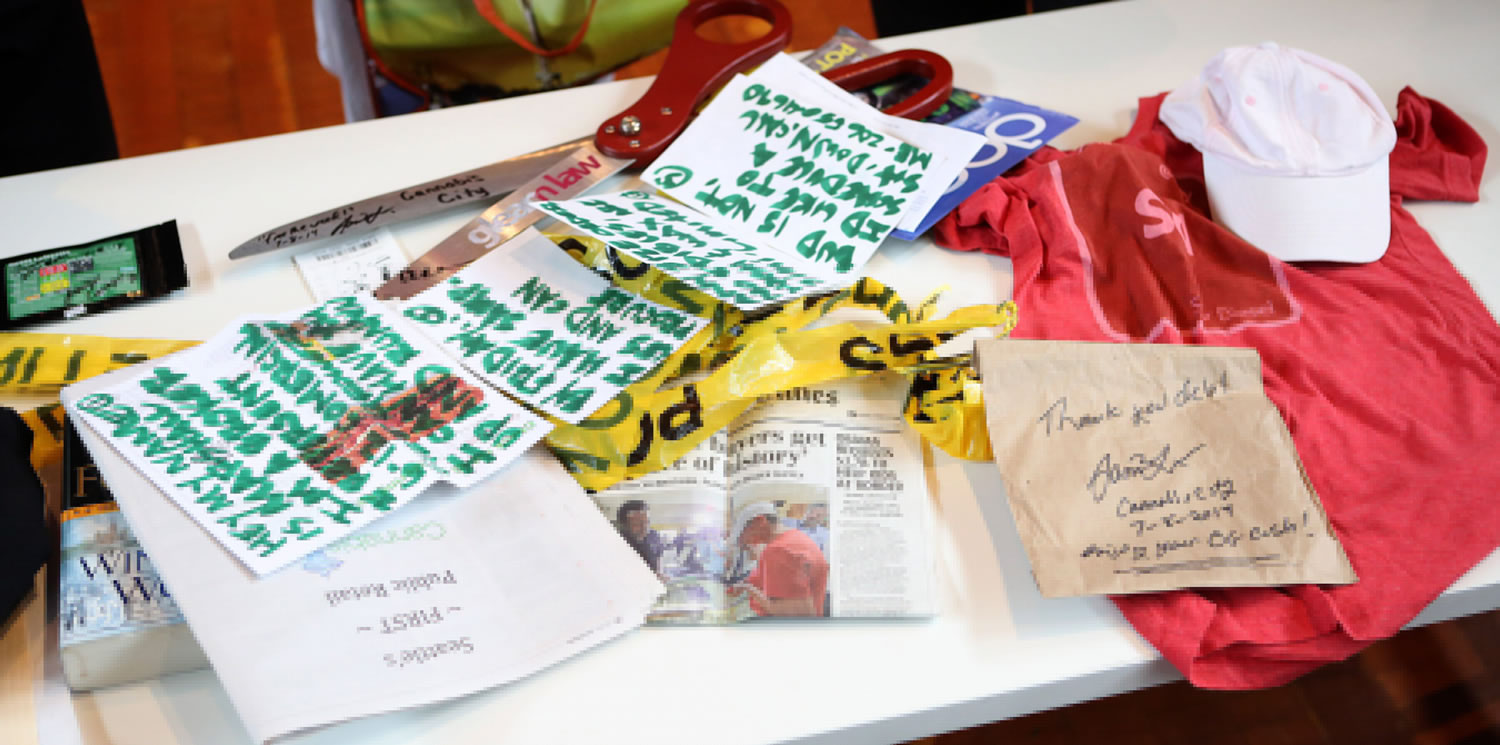Read the full Brookings report.
When it comes to marijuana legalization, lessons from the slow, clunky rollout in Washington may end up being more helpful to other states than lessons from Colorado’s relatively smooth launch.
That’s because research mandated by the Washington law should provide a wealth of knowledge about how implementation realistically impacts the public, according to a new report by the Brookings Institute.
“My impression is that Washington is on the cutting edge” of marijuana social policy research, the report’s author, Philip Wallach, told The Columbian. “It really is a pretty foundational shift in the place of this drug in Washington’s legal structure.”
The report, “Washington’s Marijuana Legalization Grows Knowledge, Not Just Pot: A Report on the State’s Strategy to Assess Reform,” notes that the state has intentionally moved slowly to track several aspects of the new law and how it works.
Parts of Initiative 502, which Washington voters approved in 2012, include funding for research on social and youth impacts, prevention and treatment studies, and a cost-benefit analysis by the Washington State Institute for Public Policy.
While several national studies exist about illegal use and distribution of marijuana, there really isn’t much out there at all about legal use. And it may still be a few years before much is known about the successes and failures of legalization in Washington, Wallach said.
“Some studies started shortly after I-502 was approved in Nov. 2012, and there’s a small amount that you can start to measure now, but I think we’ve got to be a little patient” while researchers collect data, he said. “I kind of see 2015 as the first full real year of data in Washington, and we won’t see anything from that probably until 2016.”
That doesn’t necessarily negate the frustrations of those who have criticized the state over slow rollouts, product shortages and high prices since the first stores opened in early July.
But it does at least give some perspective on why those things are happening.
“There is a case to be made that the longer-term outlook is better, with skeptics overtly preoccupied with the inevitable growing pains and insufficiently appreciative of the benefits of moving slowly,” Wallach said in the report. “From the (Liquor Control Board’s) perspective, gaining ground slowly and fully controlling ground once gained is far more important than moving quickly.”
The slow process allows for a system that more effectively “excludes criminals, prevents diversion, provides for serious testing and labeling, facilitates empirical understanding of the legal market’s effects and maintains an appropriate price for legal marijuana several years down the road,” the report said.
A few studies have already begun, some attempting to set a baseline of pre-legalization information for future research to be compared with.
The Washington State Institute for Public Policy released some of that information in a November 2013 report that looked at the prevalence of marijuana use.
That report, part of a national survey of 70,000 residents age 12 and older, found that 16.6 percent of youth and 9.1 percent of adults said they used marijuana in 2010-2011. That is up from a low of 10.2 percent of youth in 2004-2005 and 5.3 percent of adults in 2002-2003.
As for lifetime use, in the 2010-2011 survey, 31.4 percent of youth and 54.6 percent of adults in Washington reported using marijuana at some point.
Baselines like that will be critical in determining how legalization changes use both for adults and youth, Wallach said.
And once a solid body of verifiable scientific data is available, it should help counter outlandish claims on both sides of the debate over legalization, he said.
“Washington’s knowledge experiment has the potential to decisively rebut and discredit false claims and misleading anecdotes; once there is good information to counter the bad, politicians peddling outlandish claims risk being branded as liars rather than merely purveyors of hyperbole,” the report said.
That said, it will probably be a lot longer before the public sees real scientific research on some of the medical claims about marijuana, both pro and con, Wallach said.
That’s because right now, federal research projects — and federally funded research projects — must use marijuana from a special facility at the University of Mississippi.
Scientists are reluctant to use samples outside of that facility because of limited funding sources and because national science journals are less likely to publish research if the samples aren’t from a federally recognized source.
Eventually, though, Wallach said he thinks there will be more medical studies at universities, especially as more states such as Oregon and Alaska consider legalizing the drug.
And either way, the data gathered in Washington now can help those states make better policy decisions when they implement their own laws, he said.
“Drug policy will always give rise to explosive drug politics, and why not?” Wallach asked in the report. “Drugs, including marijuana, do indeed ruin many people’s lives, and we cannot expect most citizens to feel dispassionate about that fact. But America’s drug war, too, has ruined many lives, and an awakening to that reality has led Washington’s voters to undertake a bold and important policy experiment.”



